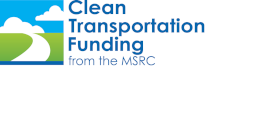The University of California, Los Angeles (UCLA) was an early adopter of compressed natural gas (CNG) as a fleet fuel. The station selected for upgrade was a first-generation system installed in 1993. Although the station was configured to allow public access, the principal user has been UCLA fleet vehicles.
31842.00
Station construction commenced in May 2008 with the Grand Opening ceremony and press release taking place on August 28, 2008. The Final Report was submitted to the MSRC on January 21, 2009.
UCLA operates 62 light duty CNG vehicles and 14 CNG campus shuttle buses. To meet growing fuel demands of the UCLA fleet and to attract additional public users, it was deemed necessary to upgrade station components and modernize the public access payment options to include credit cards. MSRC Clean Transportation Funding, matched dollar for dollar by UCLA, funded the replacement of the existing fuel dispenser and payment card reader. UCLA was subsequently awarded $140,000 from the South Coast AQMD to replace additional CNG station components in partnership with Clean Energy, Inc. The upgrades allowed this first generation system to meet the fueling capacity and reliability standards found in state-of-the-art CNG systems installed today.
clean Energy worked with UCLA Facilities Management personnel and provided all technical specifications and sizing information for the reconstructed CNG refueling station. Clean Energy also provided training to onsite personnel relative to the correct operation and maintenance of the station equipment. Preventative maintenance and on-site data logging procedures have also been established. No major issues or problems were identified during the replacement and upgrade of the station. Since completion of the facility upgrade, the UCLA station has displaced an average of 2,500 gallons of petroleum-based fuel per month. The facility is technically capable of reaching the throughput requirement of 150,000 GGE annually by its third year of operation.
The UCLA CNG station is currently operational and no technical or programmatic issues have been identified.
